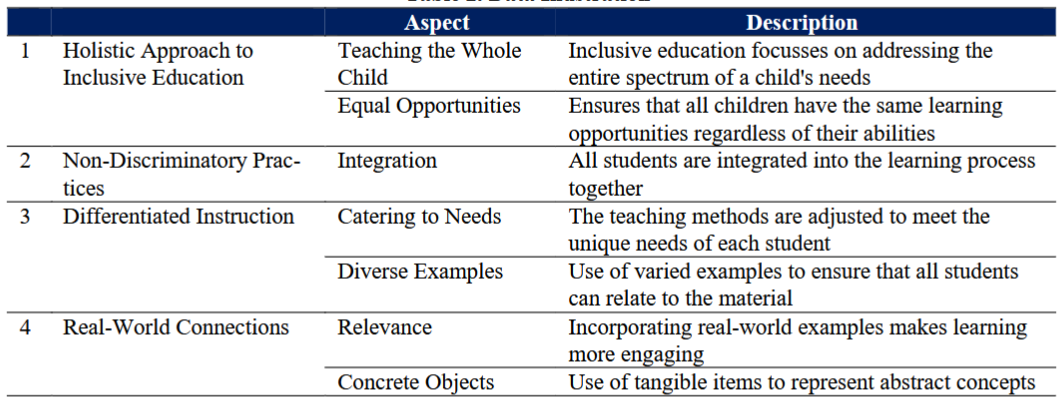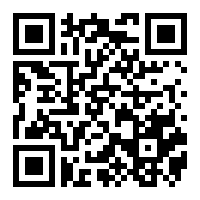Conceptualising Inclusive Education: Insights from South African Primary School Principals
DOI:
https://doi.org/10.23917/ijolae.v7i1.23615Keywords:
diverse learners, educational policies, educators' role, holistic teaching, inclusive education, learning environment, learning leadership, teacher trainingAbstract
This study explores the understanding of inclusive education by principals in South African primary schools. It draws on in-depth research and reflective engagements over the past 30 years on the implementation of inclusive education in South African schools. Although the South African government introduced and adopted various policies, understanding the concept of inclusive education in the education sector remains contentious. This research focusses on understanding the principles and practices of inclusive education in schools, ensuring that all students have equal access to learning opportunities. Research objectives have been sharpened to investigate the implementation of inclusive education, accommodating different types of learners, and strategies used to promote a supportive learning environment. A qualitative case study design was used in the six primary schools in the uMgungundlovu district, South Africa, to encourage a deeper understanding of inclusive education as a concept within general education. The data collected were analyzed using content analysis. By examining various aspects of inclusive education, this study uncovers the essential role of educators in fostering an inclusive classroom culture that satisfies the diverse needs of all learners. The study concludes that inclusive education involves holistically teaching all learners by implementing differentiated instruction with adequate support for diverse learners. The findings of the study have practical implications for the education sector, as they highlight the need for intensive training in higher education institutions to bridge the gap in understanding and practice of inclusive education, underlining its urgency and importance.
Downloads
References
Assembly, U. G. (1948). Universal Declaration of Human Rights. United Nations General Assembly, 302(2), 14–25.
Bush, T. (2013). Instructional Leadership and Leadership for Learning: Global and South African Perspectives. Education as Change, 17(1), 5–20.
doi.org/10.1080/16823206.2014.865986.
Chabalala, G., & Naidoo, P. (2021). Teachers' and Middle Managers' Experiences of Principals' Instructional Leadership Towards Improving Curriculum Delivery in Schools. South African Journal of Childhood Education, 11(1), 1-10.
doi.org/10.4102/sajce.v11i1.910.
Cohen, L., Manion, L., & Morrison, K. (2018). Research Methods in Education. London: Routledge.
Cox, J. S., & Mullen, C. A. (2023). Impacting Student Achievement: Principals’ Instructional Leadership Practice in Two Title I Rural Schools. Journal of School Leadership, 33(1), 3–25.
https://doi.org/10.1177/10526846221133996.
Corral-Granados, A., Rapp, A. C., & Smeplass, E. (2024). Can all children flourish in Nordic communities? A study of how elementary school children perceive their well-being. Cogent Education, 11(1), 2374192.
Creswell, J. W. (2013). Research Design. Los Angeles: Sage.
Department of Education. (2001). Education White Paper 6. Special Needs Education. Building an Inclusive Education and Training System. Government Printers: Pretoria, South Africa.
De Vos, A. S., Strydom, H., Fourche, C. B., & Delport, C. S. L. (2017). Research at Grass Roots (4TH Ed). Pretoria: Van Schaik.
De Matthews, D. E., Serafini, A., & Watson, T. N. (2021). Leading Inclusive Schools: Principal Perceptions, Practices, and Challenges to Meaningful Change. Educational Administration Quarterly, 57(1), 3–48. doi.org/10.1177/0013161X20913897.
Du Plessis, P., & Mestry, R. (2019). Teachers for Rural Schools - A Challenge for South Africa. South African Journal of Education, 39(1), 1–9. https://dx.doi.org/10.15700/saje.v39ns1a1774.
Du Plooy-Cilliers, F., Davis, C., & Bezuidenhout, R. (2014). Research Matters. Jutta & Company.
Fadhil, I., & Sabic-El-Rayess, A. (2021). Providing equity of access to higher education in Indonesia: A policy evaluation. Indonesian Journal on Learning and Advanced Education (IJOLAE), 3(1), 57-75.
Geleta, A., D. (2019). School Principals and Teachers’ Perceptions of Inclusive Education in Sebeta Town Primary Government Schools, Sebeta, Ethiopia. International Journal of Technology and Inclusive Education, 8(1), 1364-172.
Göransson, K., & Nilholm, C. (2014). Conceptual Diversities and Empirical Shortcomings–A Critical Analysis of Research on Inclusive Education. European Journal of Special Needs Education, 29(3), 265-280.
Hallinger, P. (2022). Developing Instructional Leadership Teams in High Schools 1. In School Effectiveness and School Improvement (pp. 319-330). Routledge.
Hardini, R. M., Prahmana, R. C. I., Akib, I., & Shahrill, M. (2021). Learning Social Arithmetic of Low-Ability Student through the Context of Snacks and Money. Indonesian Journal on Learning and Advanced Education (IJOLAE), 4(1), 21-33.
Hernández-Torrano, D., Somerton, M., & Helmer, J. (2020). Mapping Research on Inclusive Education Since Salamanca Statement: A Bibliometric Review of the Literature Over 25 years. International Journal of Inclusive Education, 26(9), 893-912. https://doi.org/10.1080/13603116.2020.1747555.
Khaleel, N., Alhosani, M., & Duyar, I. (2021). The Role of School Principals in Promoting Inclusive Schools: A Teachers’ Perspective. In Frontiers in Education, 6, 1–14. doi: 10.3389/feduc.2021.603241.
Lindner, K. T. & Schwab, S. (2020). Differentiation and Individualisation in Inclusive Education: A Systematic Review and Narrative Synthesis. International Journal of Inclusive Education. https://doi.org/10.1080/13603116.2020.1813450.
MacBearth, J. (2019). Leadership for Learning. In: Townsend T. (Eds). Instructional Leadership and Leadership for Learning in Schools. Palgrave Studies on Leadership and Learning in Teaching Education, Palgrave Macmillan, Cham.
Mbua, E. M. (2023). Principal Leadership: Raising the Achievement of All Learners in Inclusive Education. American Journal of Education and Practice, 7(1), 1–25.
Merrigan, C. & Senior, J. (2023). Special schools at the crossroads of inclusion: do they have a value, purpose, and educational responsibility in an inclusive education system?, Irish Educational Studies, 42(2), 275-291, DOI:10.1080/03323315.2021.1964563.
Mestry, R. (2017). Empowering Principals to Lead and Manage Public Schools Effectively in the 21st Century. South African Journal of Education, 37(1), 1-4. https://dx.doi.org/10.15700/saje.v37n1a1334.
Nkadimeng, M. P. & Thaba-Nkadimeng, K. L. (2020). The factors that impede Head of Departments in Committing and Executing Their Instructional Leadership Roles Among Selected Limpopo Primary Schools in South Africa. Journal of African Education, 1(2), 39-59. Doi.org/10.31920/2633-2930/2020/1n2a2.
Norwich, B. (2022, July). Research About Inclusive Education: Are the Scope, Reach, and Limits Empirical and Methodological and/or Conceptual and Evaluative? In Frontiers in Education, 7, 1-9. Doi: 10.3389/feduc.2022.937929.
Nzuza, Z. D. (2024). Educators' Understanding of Inclusive Education in Primary Schools in South Africa. Indonesian Journal of Learning and Instruction, 7(1), 45–52. DOI:10.25134/ijli.v7i1.8301.
Poon-McBrayer, K. F. (2017). School Leaders’ Dilemmas and Measures to Instigate Changes for Inclusive Education in Hong Kong. Journal of Educational Change, 18(3), 295-309.
Republic of South Africa. (1996). Constitution of the Republic of South Africa No.108 of 1996. Pretoria: Government Printer.
Republic of South Africa. (1996). South African Schools Act No.84 of 1996. Pretoria: Government Printers.
Resolution, G.A. (1966). International Covenant on Economic, Social and Cultural Rights. General Assembly Resolution A, 2200.
Scheer, D. (2021). Integrated Framework Model for the Leadership Role of Principals in Inclusive Education. European Journal of Education, 56(4), 660–680.
Suleiman, Y., Hanafi, Z., & Muhajir, T. (2019). Influence of extracurricular services on students’ academic achievement in secondary schools in Kwara State: A qualitative approach. Indonesian Journal on Learning and Advanced Education (IJOLAE), 1(2), 1-19.
Tanzi, M. & Hermanto, H. (2024). The Role of Principals in Implementing Inclusive Education Through Culturally Responsive School Leadership. AL-ISHLAH: Jurnal Pendidikan, 16(1), 570-580. DOI: 10.35445/alishlah.v16i1.4274.
Thambu, N., Prayitno, H. J., & Zakaria, G. A. N. (2021). Incorporating active learning into moral education to develop multiple intelligences: A qualitative approach. Indonesian Journal on Learning and Advanced Education (IJOLAE), 3(1), 17-29.
UNESCO. (1994). The Salamanca Statement and the Action Framework for Special Needs Education. Adopted by the World Conference on Special Needs Education, Access, and Quality. Salamanca, Spain, 7-10 June 1994. Paris: UNESCO.
UNESCO. (2000). Education for All: Meeting our collective commitments. Notes on the Dakar Framework for Action. UNESCO.
United Nations. (2006). Convention on the Rights of Persons with Disabilities. New York: UNICEF.
Winarti, A., Almubarak, A., Sundari, T., Sumardjoko, B., & Nzuza, Z. (2024). Enhancing Cognitive Learning: A Comparative Analysis of E-Learning Media Tailored to Different Learning Styles. Indonesian Journal on Advanced Learning and Education, 6(2), 280-294. DOI: 10.23917/ijolae.v6i2.23079.
World Declaration on Education for ALL and Framework for Action to Meet Basic Learning Needs. (1990). United Nations Educational, Scientific, and Cultural Organisation: UNESCO Digital Library.
Yin, R.K. (2015). Applications of Case Study Research (3RD Ed.). Sage Publication.

Submitted
Published
Issue
Section
License
Copyright (c) 2025 Zakhele Dennis Nzuza, Jamiu Temitope Sulaimon

This work is licensed under a Creative Commons Attribution 4.0 International License.












